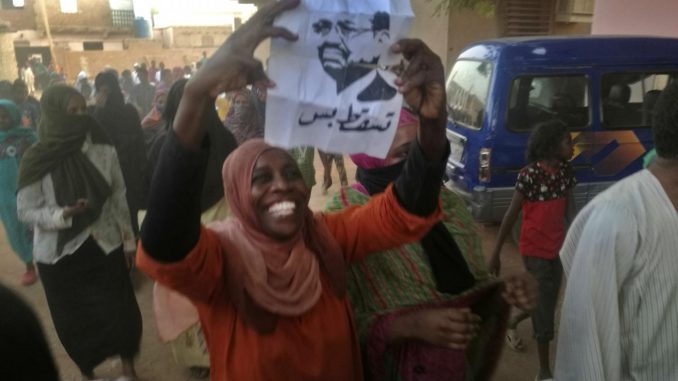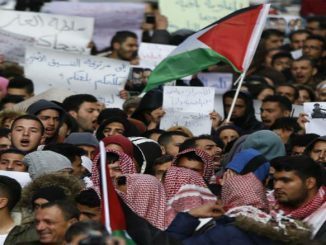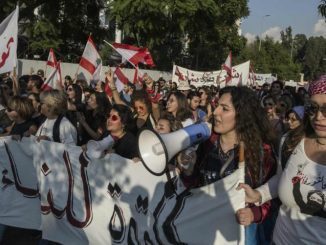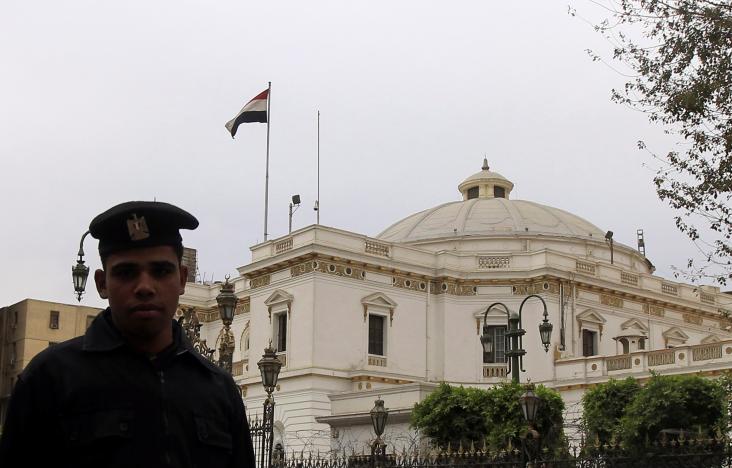
The protesters were reportedly calling for women arrested during ongoing demonstrations against President Omar al-Bashir’s rule to be released.
“We are fighters, we will complete our mission,” witnesses told AFP the crowd chanted, as women ululated and men flashed the victory sign.
As the marchers approached the prison, they called for the “overthrow” of Bashir, who has ruled Sudan for three decades.
The rally was called by the Sudanese Professionals Association (SPA), an umbrella body of doctors, engineers and teachers that is spearheading the protest campaign.
The SPA labeled the march the “Rally for Women Detainees”.
“Women are taking the lead in the protest movement,” a female protester taking part in the march told AFP, without revealing her name for security reasons.
“The SPA has called today’s march in honour of female detainees and this will inspire us to continue until we achieve success.”
After being dispersed en route to the prison, protesters congregated again in another part of Omdurman called Street 40, witnesses said.
In reference to Ahmed al-Kheir, who died in detention in the eastern town of Khashm al-Girba, the protesters chanted “we are all Ahmed”, one witness said.
Kheir was arrested for allegedly organizing protests in his hometown, one of his relatives told AFP.
Security forces led him away and then later told his family he had died in detention.
Protests also broke out in the Sudanese capital Khartoum, but were quickly dispersed with tear gas, witnesses said.
The demonstrations, which have been roiling since they broke out on 19 December, have been described as one of the most significant threats to Bashir’s 30-year rule.
Initially erupting over the price of bread, they have swiftly become demonstrations against Bashir’s government.
Over 1,000 people, including opposition leaders, activists, protesters and journalists, have been arrested since the protests broke out.
On Wednesday, Bashir linked the protests to Sudan’s decades-old public order law, which activists say mainly targets women, often through accusations of “indecent dressing and immoral behavior”.
Bashir also acknowledged the economic hardship many were suffering from.
Rights groups say that more than 50 people have been killed in the protests, though officials put that number closer to 30.



